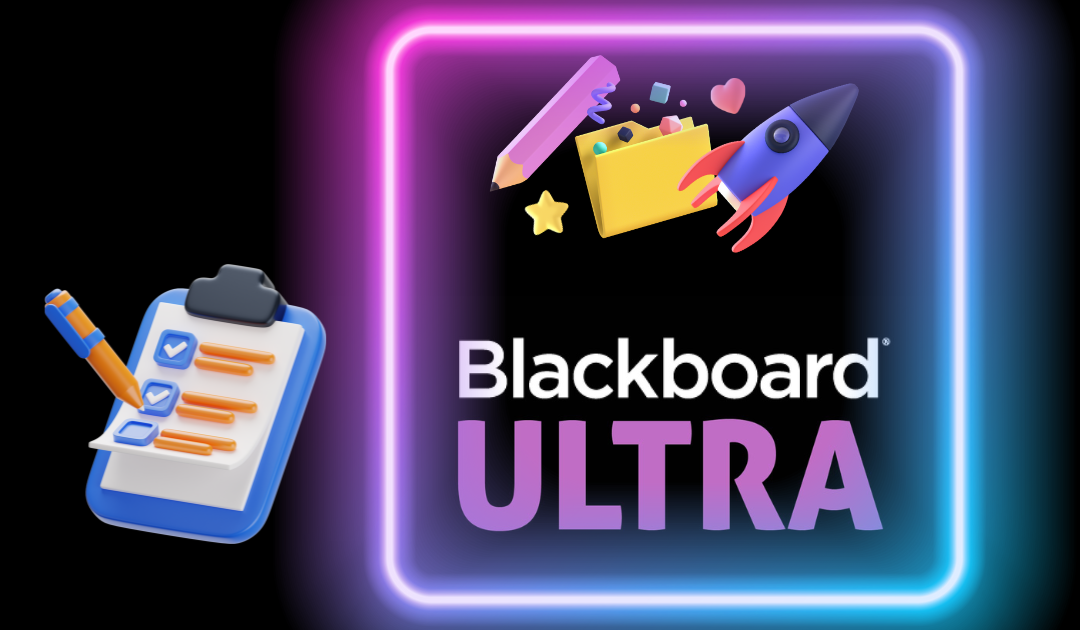It seems there is still some confusion about the plan to transition to Ultra so I thought I’d write a post about that, with lots of links to the relevant resources. Hopefully, this will clear things up for everybody.
So first things first, the official launch date for the Ultra transition is October 1st, which will be a day of festivities, fun, swag, and other merriment at the Learning Technologies office.
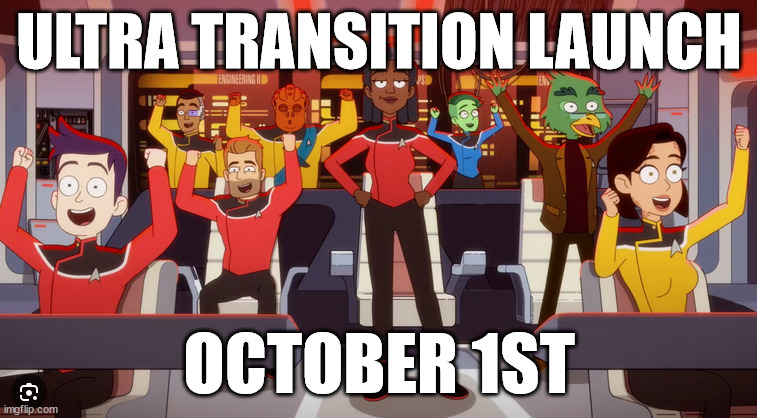
“When will I be moved to Ultra?” You won’t. The transition plan is based on faculty agency. The responsibility is on us to get it done before the end of Fall 2025. Blackboard Original will no longer be available in Spring 2026. Therefore, we all need to make our plan, whether individually, or within our departments, to figure out how to get it done. There is no super secret administrative plan to move us by fiat.
And I would like to reiterate what I have said before: “I’ll figure it out in Fall 2025” is NOT a plan (not even a concept of a plan). Please don’t do that.
For all of us, this means a few things:
- getting the training we need;
- getting development shells to work on conversion of our courses;
- getting our converted courses to live shells.
If it were me, I would do (1) this Fall, (2) in Spring and Summer 2025, and get to (3) in Fall 2025. That’s one way to get it done. It’s also perfectly possible to work on your developments shells (yes, you can have more than one) while getting trained.
Whichever way you choose, sitting on one’s hands until Fall 2025 is not the way to go.
So let’s talk training.
Learning Technologies has been working hard to provide training in all sorts of modalities, with different workshop length, general conversion courses, specific workshops on single topics (such as the gradebook), as well as providing individual support to faculty. All the resources are compiled in the Learning Technologies newsletter, which you all, of course, read religiously, right?
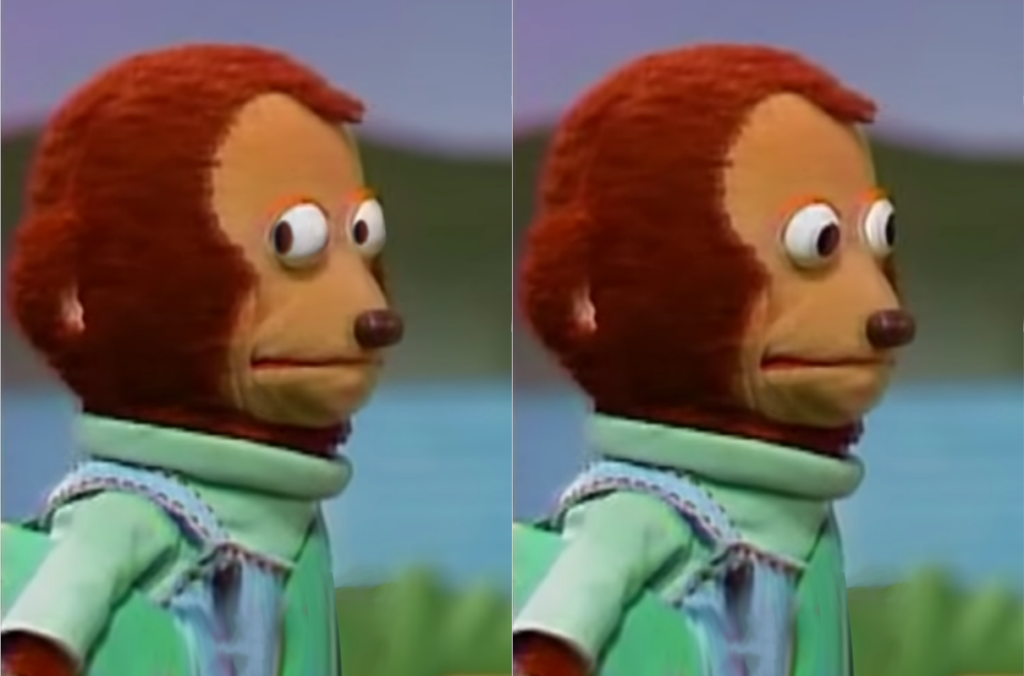
However, let me provide some links for what LT will be offering this semester. This page will take you to the list of workshops all the way through December 2024. You only need to do the clicky thing to register from there.
The LT office also has a page on the COD website that is loaded with information about the Ultra Transition.
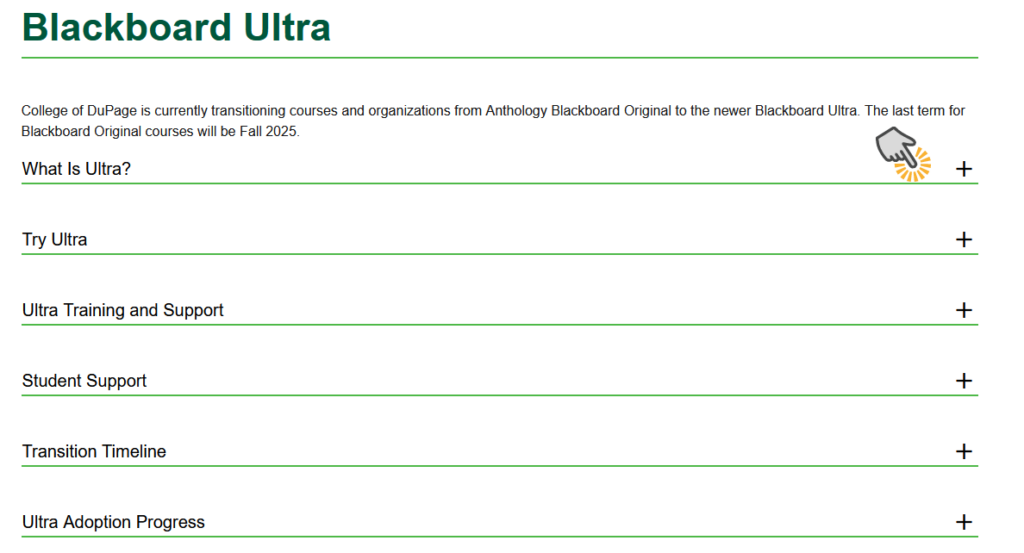
All those + signs will open more detailed content. For instance, you can also find all the training information there as well:
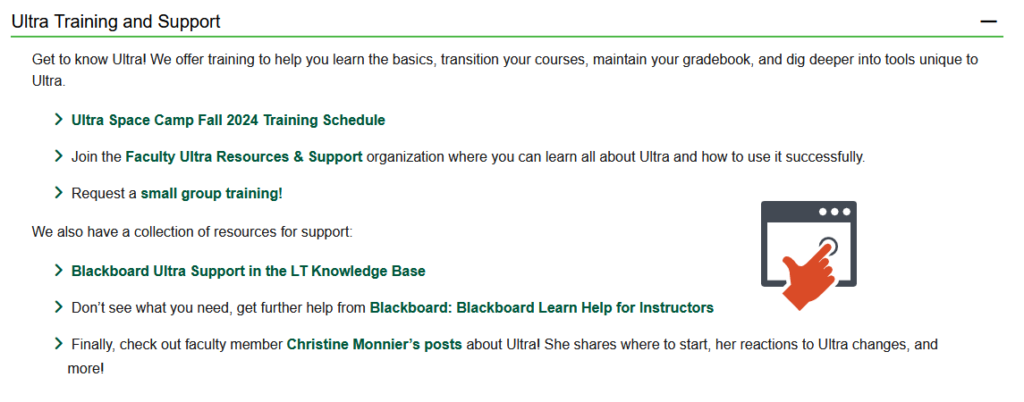
And if you’d rather do things on your own, LT has a pretty extensive knowledge base where you can find articles on a lot of Ultra-related topics.
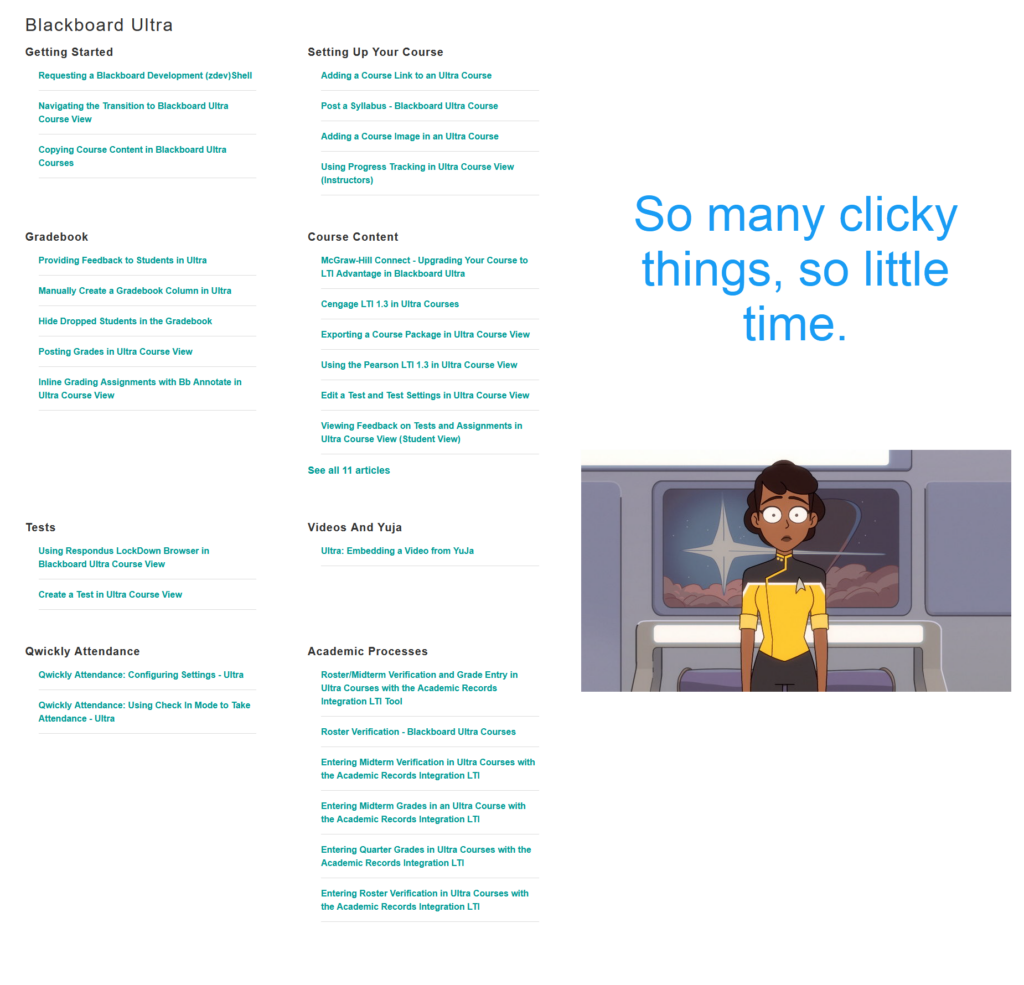
So that’s the training part. Getting a development shell (or more than one, I recommend you get one for every course you teach) is easy. On the same page I linked to earlier, click on Try Ultra:
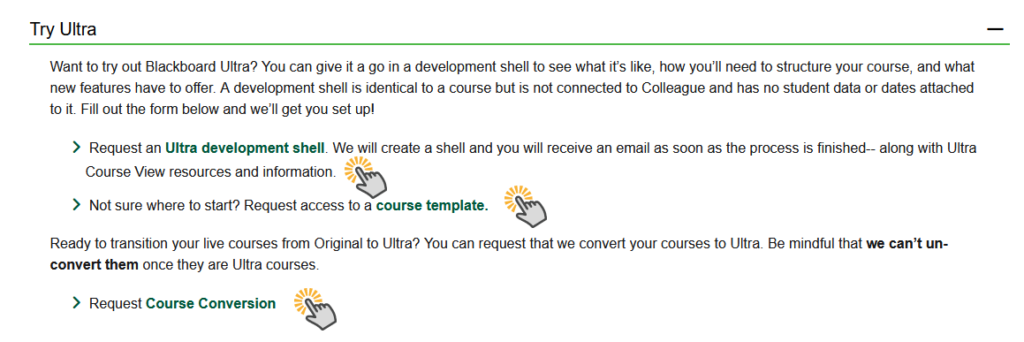
You can then start working on converting your courses. I still recommend starting from scratch in at least one course so you can get a sense of what is involved and the time it takes you to convert a course. And by starting from scratch, I don’t mean re-writing your courses entirely but copying things over bit by bit, checking that everything is the way you want, make some modifications, if needed, and moving on to the next component of the course. That is, as opposed to importing an original course wholesale and then having to look at every single item to make sure it’s converted ok. If you’re not sure, I recommend setting up a one-on-one consultation with one of our Learning Technologies colleagues to go over your course as it currently is, to flag whatever might be problematic, or just clean up your course a bit to facilitate its conversion.
And once you’ve got your courses set up the way you want them in your developments shells. you can then get them transferred over to your live shells. You don’t have to do them all at once, but I’m pretty confident that once you’ve done one course, you will find it easy to do the rest of them.
But again, whichever path you choose, you need a plan that gets you there before the end of Fall 2025.
Anyhoo, that’s the plan.
Hope this clarifies it and we never have to talk about it ever again… just kidding. I know how we are.

